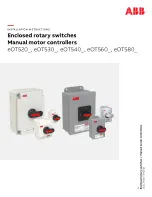
Regular Expressions as Filters
Regular expressions are used to filter AS paths or community lists. A regular expression is a special character used to define a pattern that
is then compared with an input string.
For an AS-path access list, as shown in the previous commands, if the AS path matches the regular expression in the access list, the route
matches the access list.
The following lists the regular expressions accepted in Dell Networking OS.
Regular
Expression
Definition
^ (caret)
Matches the beginning of the input string. Alternatively, when used as the first character within brackets [^ ], this
matches any number except the ones specified within the brackets.
$ (dollar)
Matches the end of the input string.
. (period)
Matches any single character, including white space.
* (asterisk)
Matches 0 or more sequences of the immediately previous character or pattern.
+ (plus)
Matches 1 or more sequences of the immediately previous character or pattern.
? (question)
Matches 0 or 1 sequence of the immediately previous character or pattern.
( ) (parenthesis)
Specifies patterns for multiple use when one of the multiplier metacharacters follows: asterisk *, plus sign +, or
question mark ?
[ ] (brackets)
Matches any enclosed character and specifies a range of single characters.
- (hyphen)
Used within brackets to specify a range of AS or community numbers.
_ (underscore)
Matches a ^, a $, a comma, a space, or a {, or a }. Placed on either side of a string to specify a literal and disallow
substring matching. You can precede or follow numerals enclosed by underscores by any of the characters listed.
| (pipe)
Matches characters on either side of the metacharacter; logical OR.
As seen in the following example, the expressions are displayed when using the
show
commands. To view the AS-PATH ACL configuration,
use the
show config
command in CONFIGURATION AS-PATH ACL mode and the
show ip as-path-access-list
command in
EXEC Privilege mode.
For more information about this command and route filtering, refer to
The following example applies access list Eagle to routes inbound from BGP peer 10.5.5.2. Access list Eagle uses a regular expression to
deny routes originating in AS 32. The first lines shown in bold create the access list and filter. The second lines shown in bold are the regular
expression shown as part of the access list filter.
Example of Using Regular Expression to Filter AS Paths
Dell(config)#router bgp 99
Dell(conf-router_bgp)#neigh AAA peer-group
Dell(conf-router_bgp)#neigh AAA no shut
Dell(conf-router_bgp)#show conf
!
router bgp 99
neighbor AAA peer-group
neighbor AAA no shutdown
neighbor 10.155.15.2 remote-as 32
neighbor 10.155.15.2 shutdown
Dell(conf-router_bgp)#neigh 10.155.15.2 filter-list 1 in
Dell(conf-router_bgp)#ex
Dell(conf)#ip as-path access-list Eagle
Border Gateway Protocol IPv4 (BGPv4)
197
Summary of Contents for S3048-ON
Page 1: ...Dell Configuration Guide for the S3048 ON System 9 11 2 5 ...
Page 137: ...0 Gi 1 1 Gi 1 2 rx Flow N A N A 0 0 No N A N A yes Access Control Lists ACLs 137 ...
Page 142: ...Figure 10 BFD Three Way Handshake State Changes 142 Bidirectional Forwarding Detection BFD ...
Page 241: ...Dell Control Plane Policing CoPP 241 ...
Page 287: ... RPM Synchronization GARP VLAN Registration Protocol GVRP 287 ...
Page 428: ...Figure 53 Inspecting the LAG Configuration 428 Link Aggregation Control Protocol LACP ...
Page 477: ...Figure 73 Configuring Interfaces for MSDP Multicast Source Discovery Protocol MSDP 477 ...
Page 478: ...Figure 74 Configuring OSPF and BGP for MSDP 478 Multicast Source Discovery Protocol MSDP ...
Page 483: ...Figure 77 MSDP Default Peer Scenario 2 Multicast Source Discovery Protocol MSDP 483 ...
Page 484: ...Figure 78 MSDP Default Peer Scenario 3 484 Multicast Source Discovery Protocol MSDP ...
Page 745: ...Figure 104 Single and Double Tag TPID Match Service Provider Bridging 745 ...
Page 746: ...Figure 105 Single and Double Tag First byte TPID Match 746 Service Provider Bridging ...
















































